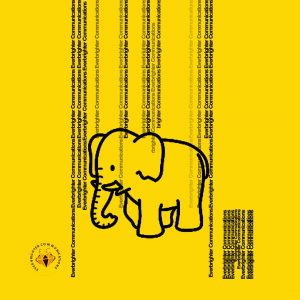BY NGOZI ADIGHIBE
In previous posts, our focus has been on the “culture of connectivity” and “the struggle to define online sociality” (Van Dijck, 2013). Under the culture of connectivity, I discussed online communication as a new kind of culture that has its etiquettes and implications. While, the struggle to define online sociality focused on some of the online struggles of Flickr, YouTube and Wikipedia.
In the next few posts, I’ll be discussing another kind of culture, “convergence culture” otherwise known as “participatory culture” (Jenkins, 2008). To properly analyze this culture and for easy digestion, I have grouped my analysis into 5Cs, which represent Consumer, Content, Collaboration, Consequences and Conclusion. However, in this post, I’ll only discuss the first of the 5Cs – Consumer.
Consumer: A critical player
In the past, the word, ‘convergence’ was used to refer to the merging of technologies to improve daily living and business practices. This was referred to as “convergence I and II” by Thomas Friedman in his book, “The World is Flat.” However, according to Friedman (2007) and these other authors (Benkler, 2006; Jenkins, 2008; Tapscott & Williams, 2008), the definition of convergence has grown beyond technologies alone.
Today, it applies to a generation of consumers, who use technology as a medium of collaboration and connection to the rest of the world. I must state here that the use of generation in this context does not refer to a particular age. Instead, it speaks of a set of people, who have refused to sit back and digest everything the media feeds to them. They are producers of their own information and consumers as well. These set of consumers are not vulnerable to the “Hypodermic needle theory” of the media. In other words, they don’t just take in the information they see or hear.
What do they do?
They have made consumption, a collective process (Jenkins, 2008). For the purpose of this post, I would refer to them as “players“. No pun intended, but based on the behaviour of this genre of consumers, that word struck me as the best caption to explain precisely what these consumers do. These players receive information, then they meditate on it, using online and offline research. They discuss it with friends and finally accept the conclusions they have drawn.
Do you see why I used the word “player“? They go from one website to the other and from one person to another gathering information until they finally settle on what they think is best.
Jenkins (2008) noted that “the circulation of media content depends heavily on consumers’ active participation.” Benkley (2006) mentioned that “individuals more than the owners control this networked economy.” Lastly, Tapscott & Williams (2008) pointed out that “individuals had the power or opportunity to link up in loose networks of peers to produce goods and services….”
In other words, consumers are critical players in this culture of connectivity, they control what takes place within the network of connectivity, and anyone can be part of these active consumers. But, as added by Jenkins (2008), not all participants are created equal. I know what you are thinking; here comes the popularity principle again! Hmmm…not really, there is a slight difference!
The difference is that in this case, participants are not equal based on their strategic positioning in life and how much they choose to participate. For example, one cannot expect a regular citizen’s participation to be considered equal to that of the President of a country. Not necessarily because of their different status. But, because the President, due to his position, has to participate and collaborate more frequently with people online. Thus, the President becomes more empowered through his or her choice to participate.
Nevertheless, if you as an individual decide to be a “player” and participate actively and more frequently than the President, then you will be more empowered. That is why there are individuals who are not strategically positioned, but they are major online influencers.
So, the power is in your hands. What are you going to do with it?




Pingback: Convergence Culture (Part 2): Free Content Everywhere | Everbrighter Communications
Everyone loves it when people get together and share ideas.
Great website, stick with it!
I blog frequently and I really thank you for your content.
This great article has truly peaked my interest. I’m
going to book mark your website and keep checking for new details about once per week.
I opted in for your Feed too.